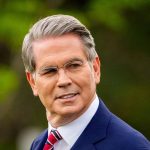Who is the leader who has had the greatest (positive) impact on you? What did they do, how did they behave to have an impact on you? What made the difference?
The answer to that question often triggers responses such as “He/she really listened to me, I was energized, I felt important”. They are often emotional experiences rather than simply intellectual experiences, and this is because the most impactful leaders have the ability to connect both with people’s hearts and minds.
Here Mandy Flint and Elisabet Vinberg Hearn, multi award-winning authors of ‘The Leader’s Guide to Impact’ take a look at some successful leaders and reflect on what creates their impact, hence success.
“Great leaders are optimists. This is not the same as being positive. Positive is finding the light in the now; optimists see the light always.” - Simon Sinek
Paul Polman, the recently retired CEO of Unilever, was, by connecting with a purpose of sustainability, able to build greater consumer trust in the organisation.
Some other leadership lessons from Polman:
- He sees himself as being of service to his employees, to help them be successful
- He tailors his leadership to different audiences, while staying authentic
- He communicates with shareholders about long-term success, not just the short-term quarterly reports
- ‘Doing good’ is good for business, and increasingly an expectation of younger generations
Richard Branson keeps having an impact as a leader, several decades after starting his Virgin business in 1972. Some of his impactful leadership behaviours:
- He dares to try and fail. Not all his business ventures have been successful, but he has learnt from them and used that learning going forward
- He challenges the status quo, and seizes market opportunities
- He connects with people, and puts employees first
- The culture he creates is one of fun, entrepreneurial spirit, and learning
The success of Jeff Bezos’ Amazon is a triumph of logistics, but also his focus on “Day 1” culture - to retain a start-up mindset; embracing trends quickly, continuous innovation, focusing on result rather than process.
And this is what he lives by as a leader:
- Having a relentless customer focus
- Giving people the freedom to do their job
- Bringing people together for collaborative innovation, creating new thinking
- A willingness to change and embrace new solutions
When Satya Nadella took over the helm at Microsoft, he started a reshape of the organisation and its culture, which has once again made it the most valuable company in the world. Some of his successful leadership characteristics:
- A belief in the importance of growth mindset, to keep an open mind and keep learning
- Extending collaboration by for example engaging with the open source development community
- Seeing empathy as an enabler for teamwork
- A focus on creating clarity in times of uncertainty
What all leaders can learn from them
These leaders all understand and believe with passion in the power of culture. They know that the culture at work matters greatly; they know that “culture eats strategy for breakfast”. This makes them shapers of their cultures; they know that what they do, how they behave goes much further than simply talking about culture. This in turn is a great reminder that leaders, particularly the most senior ones are culture shapers first and foremost.
It is not just about what you do as a leader but more importantly how you do it. Increasingly, leaders need to be more emotionally intelligent and aware of the impact they have on all their stakeholders, the world they operate in and their culture – and be intentional about their behavioural impact.
Yes, leaders truly are the carriers of culture
And the cultures of these four leaders are further shaped by them being passionate visionaries, and people respond and engage more with someone’s passionate dream than their strategic plan. Imagine if Martin Luther King Jr had said: “I have a strategic plan…”








